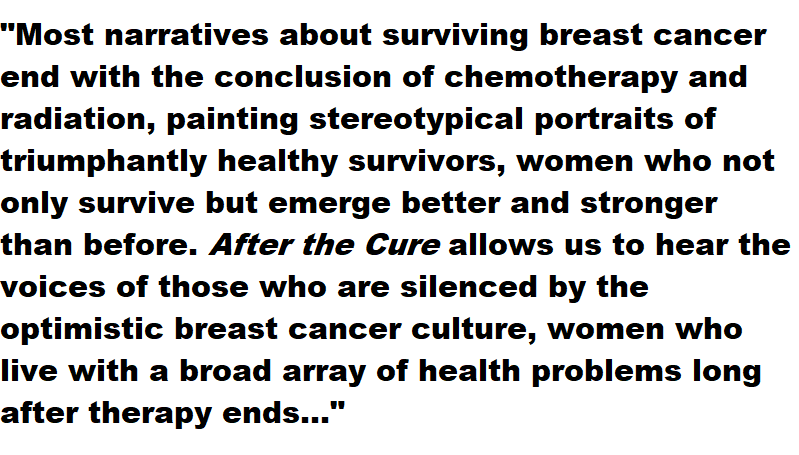By Helle Ploug Hansen and Tine Tjørnhøj-Thomsen
https://doi.org/10.1111/j.1548-1387.2008.00035.x
Abstract: A fundamental assumption behind cancer rehabilitation in many Western societies is that cancer survivors can return to normal life by learning to deal with the consequences of their illness and their treatment. This assumption is supported by increasing political attention to cancer rehabilitation and a growth in residential cancer rehabilitation initiatives in Denmark (Danish Cancer Society 1999: Government of Denmark 2003). On the basis of their ethnographic fieldwork in residential cancer rehabilitation courses, the authors examine the new rehabilitation discourse. They argue that this discourse has challenged the dominant illness narrative, “sick-helped-cured”, producing a new narrative, “sick-helped-as if cured,” and that this new narrative is produced and reproduced through technologies of power and the self.
This article discusses shift in the ways that the biomedical establishment deals with the disconnect between being “cured” and being “well. The article points out out that the dearth of rehabilitation care can be attributed in part to increased survivor rates; the treatment paradigm is no longer just preparing patients for the possibility of death but providing care post treatment. The “cancer establishment” has begun to address that need through rehabilitation programs, which help patients navigate the difficulties of post treatment side effects. The article also discusses patient anxieties over relapse, social stigmas, and the moral value society attaches to patients participation in rehabilitation programs. Hanson points out that rehabilitation still brings up issues of normality vs deviance, assuming normality can be achieved through participation in the program. We see underlying this model the same assumptions about willpower and personal responsibility that are embedded in mainstream narratives about cancer treatment and survivorship.




